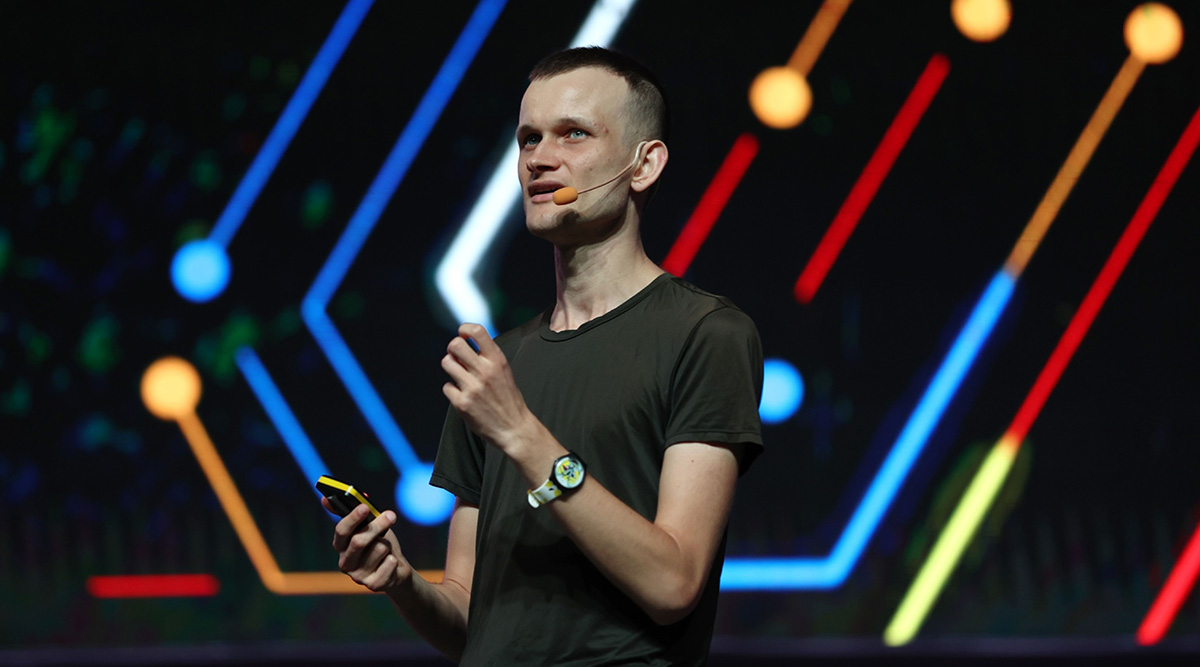Vitalik Buterin is a Russian-Canadian programmer and writer who is best known as the co-founder of Ethereum, a decentralized blockchain platform. He was born on January 31, 1994, in Kolomna, Russia. Buterin moved to Canada at a young age and attended the University of Waterloo, but he dropped out in 2014 to pursue his work on Ethereum full-time.
Buterin first proposed the concept of Ethereum in late 2013, envisioning a blockchain platform that could support the creation of decentralized applications (DApps) and smart contracts. He published the Ethereum whitepaper in 2014, and the network was launched in 2015. Ethereum introduced the concept of a programmable blockchain, allowing developers to build and deploy their own applications and tokens on top of the Ethereum blockchain.
7. Early Interest in Cryptography

Even before his involvement with Bitcoin and Ethereum, Vitalik had a keen interest in cryptography. As a teenager, he was fascinated by the cryptographic puzzles featured in video games and became an active participant in online cryptography forums.
During his teenage years, Vitalik Buterin developed a strong fascination with cryptography. Inspired by the cryptographic puzzles found in video games, he became an active participant in online cryptography forums. This early interest nurtured his understanding of cryptographic principles and techniques.
Vitalik’s involvement in these forums allowed him to exchange ideas and learn from experts in the field. His exploration of cryptography went beyond gaming, as he recognized the broader applications of this field in areas such as finance and data security.
This early passion for cryptography played a crucial role in shaping Vitalik’s journey in the block chain industry. When he encountered Bitcoin, he saw the transformative potential of decentralized systems and became deeply intrigued by the cryptographic foundations of crypto currencies.
6. Ethereum’s Genesis

The idea for Ethereum was sparked during Vitalik’s trip to the World’s Bitcoin Conference in 2013. After interacting with various individuals and attending discussions, he realized that blockchain technology could be expanded beyond just cryptocurrencies.
The genesis of Ethereum can be traced back to Vitalik Buterin’s realization of the potential of blockchain technology beyond just cryptocurrencies. After attending the World’s Bitcoin Conference in 2013 and engaging in discussions, he conceptualized Ethereum as a platform for decentralized applications and smart contracts.
This vision led him to publish the Ethereum whitepaper in 2014, outlining the technical specifications and design principles. The subsequent development and launch of the Ethereum network in 2015 marked a significant milestone in the blockchain space, providing developers with a programmable blockchain platform that has since revolutionized the way decentralized applications are built and executed.
5. Introduction of Smart Contracts

One of Vitalik’s key contributions to the blockchain space was the introduction of smart contracts. He recognized the potential for self-executing contracts and developed Ethereum as a platform where developers could build decentralized applications and deploy smart contracts.
Vitalik Buterin made a significant contribution to the blockchain industry through his introduction of smart contracts. Recognizing the potential of self-executing contracts, he integrated the concept into the Ethereum platform. Smart contracts are programmable agreements that automatically execute predefined conditions without intermediaries, ensuring transparency and security.
Vitalik’s innovation enabled developers to build decentralized applications (DApps) and deploy these contracts on the Ethereum blockchain. This breakthrough empowered developers to create a wide range of applications, from decentralized finance (DeFi) protocols to non-fungible tokens (NFTs) and decentralized exchanges (DEXs), revolutionizing how transactions and agreements are executed in a trustless and efficient manner.
4. Prior Involvement with Bitcoin

Before co-founding Ethereum, Buterin worked as a co-founder and writer for Bitcoin Magazine, where he covered news and developments related to Bitcoin and cryptocurrencies.
Vitalik Buterin had prior involvement with Bitcoin before his groundbreaking work on Ethereum. In 2011, he co-founded Bitcoin Magazine, a publication dedicated to covering news and developments in the Bitcoin and cryptocurrency space. Through his role at the magazine, Vitalik gained deep insights into the workings of Bitcoin, blockchain technology, and the broader cryptocurrency ecosystem.
This experience provided him with a solid foundation and understanding of decentralized systems and inspired him to explore further possibilities beyond Bitcoin. Vitalik’s early involvement with Bitcoin Magazine served as a stepping stone towards his subsequent contributions, including the creation of Ethereum and the introduction of smart contracts.
3. Passion for Gaming

Vitalik has expressed his love for video games and believes that blockchain technology has the potential to transform the gaming industry. He sees blockchain as a means to enhance ownership, interoperability, and trust in gaming ecosystems.
Vitalik Buterin has a notable passion for gaming, which has influenced his perspective on blockchain technology. He sees the potential for blockchain to revolutionize the gaming industry by enhancing ownership, interoperability, and trust within gaming ecosystems. Vitalik envisions a future where decentralized platforms powered by smart contracts enable players to truly own their in-game assets and seamlessly trade them across different games.
He believes that blockchain can address issues of fraud, cheating, and centralized control in gaming. Vitalik’s passion for gaming has driven his exploration of blockchain’s applications in this space, inspiring innovative solutions and discussions surrounding the intersection of gaming and decentralized technologies.
2. Non-Traditional Education

Despite dropping out of the University of Waterloo to focus on Ethereum, Vitalik has been a strong proponent of self-education and has often highlighted the potential limitations of traditional academic institutions.
Vitalik Buterin’s educational journey has been non-traditional. Despite dropping out of the University of Waterloo, he has become a prominent figure in the blockchain industry. Vitalik advocates for self-education and has highlighted the limitations of traditional academic institutions. He believes that a combination of online resources, self-study, and active participation in communities can provide a solid foundation for learning and innovation.
Vitalik’s success and contributions to blockchain technology showcase that unconventional paths can lead to remarkable achievements. His emphasis on self-education reflects his belief in the importance of continuous learning and the ability to acquire knowledge through diverse channels beyond formal education.
1. Contributions to Plasma

Vitalik played a significant role in the development of the Plasma framework, a layer-two scaling solution for Ethereum. Plasma aims to increase transaction throughput and reduce fees by creating child chains that can process transactions independently while still being anchored to the Ethereum mainnet.
Vitalik Buterin has made significant contributions to the development of Plasma, a layer-two scaling solution for the Ethereum blockchain. Plasma aims to increase transaction throughput and scalability while maintaining the security guarantees of the main Ethereum chain. Vitalik’s work on Plasma has involved research, conceptualization, and collaboration with other experts in the field.
By proposing the Plasma framework, he has laid the foundation for the creation of scalable decentralized applications (dApps) on Ethereum. Vitalik’s contributions to Plasma demonstrate his commitment to addressing scalability challenges and improving the usability of blockchain technology, further advancing the Ethereum ecosystem.